《サイエンスアゴラオンライン》 |
《前夜祭》 |
《サイエンスアゴラ実地開催》 |
No.21B1610月21日(金) 16:00~17:30
オンライン企画
世界科学フォーラムinケープタウン:社会正義と未来への科学
World Science Forum in Cape Town: Social justice and the science for the future?
JST、日本学術会議若手アカデミー、駐日南アフリカ大使館、駐日ハンガリー大使館
JST, Young Academy Science Council of Japan, South African Embassy in Japan, Embassy of Hungary
場所:オンライン
企画概要
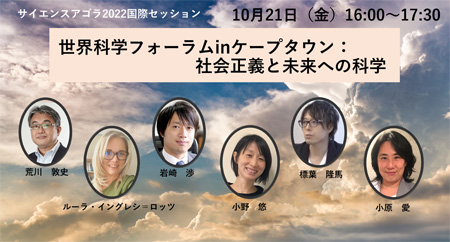
人と地球のウェルビーイングのために知識を生産する科学。そのシステムにある配分的正義とは、その本質とは何でしょうか。北半球と南半球の地域間やひとつの国の中での地域、そして異なる科学の分野でこの配分的正義に関するどのような課題があるのでしょうか。国内外の専門家が、多様な知を生むための今の課題とその克服方法、さらに、公正な科学が公正で自由な開発や経済、産業活動を通じて社会のウェルビーイングに貢献する方法について議論します。このセッションは、科学政策に関する主要な国際議論の場となっている世界科学フォーラム(WSF)に、多くの声を届ける機会を作ることも目的としています。※言語:日英(同時通訳あり)
What is distributive justice in science, a free system of knowledge production, and what is its nature? Which challenges exist relating to distributive justice in different regions, such as in the Global North and the Global South, in regions within a single country, and in different scientific disciplines? A panel of national and international experts will discuss the current challenges to generating diverse knowledge and how to overcome these challenges, as well as the ways in which fair science can contribute to the wellbeing of society through fair and free development, economic and industrial activities. This session will also be an excellent opportunity for as many voices as possible to be brought to the WSF, which has become a leading discussion forum for science policy today.
Language: Japanese/English (simultaneous interpretation available)
登壇者プロフィール

岩崎 渉 Iwasaki Wataru
The chair of Young Academy of Japan and a bioinformatics professor at the University of Tokyo
日本学術会議若手アカデミー代表、東京大学教授。専門分野はバイオインフォマティクス(生物情報科学)。科学技術分野の文部科学大臣表彰 若手科学者賞等を受賞。日本バイオインフォマティクス学会等の会長等を務める。
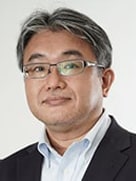
荒川 敦史 Arakawa Atsushi
Director, Department for Promotion of Science in Society, JST
JST「科学と社会」推進部長。サイエンスアゴラをはじめ、共創の場「未来社会デザインオープンプラットフォーム(CHANCE)」や「STI for SDGs」アワード、科学技術情報発信など、科学と社会との関係を深める様々な活動を指揮する。
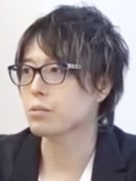
標葉 隆馬 Shineha Ryuma
Associate Professor, the Research Center on Ethical, Legal, and Social Issues, Osaka University
大阪大学・准教授。日本学術会議若手アカデミーメンバー。専門分野は科学社会学、科学技術政策論。先端科学技術の倫理的・法的・社会的課題(ELSI)の可視化、責任ある研究・イノベーション(RRI)等幅広く研究。

イングレシ=ロッツ ルーラ Inglesi-Lotz Roula
Professor in the Department of Economics in the Faculty of Economic and Management Sciences at the University of Pretoria
プレトリア大学経済・経営科学部経済学科教授。エネルギーと環境問題が専門。エネルギー消費・生産方法に関する喫緊の課題と解決策の模索、新たな代替策について研究
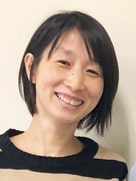
小野 悠 Ono Haruka
Associate professor, Department of Architecture and Civil Engineering at Toyohashi University of Technology
豊橋技術科学大学・准教授/学長補佐。日本学術会議若手アカデミー幹事。都市計画を専門とし、アフリカやインドなどで形成される都市の空間生成プロセスや地域独自のルール・実践について研究。
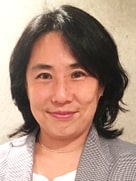
小原 愛 Ohara Ai
Director, Japan Innovation Network (JIN)
一般社団法人Japan Innovation Network(JIN)イノベーション加速支援グループディレクター。JINがUNDPと共同で立ち上げたオープンイノベーションプラットフォーム"SHIP"の運営責任者として、日本企業の技術・ノウハウで世界中の課題解決とSDGsの達成を目指す。
プログラム
| 16:00 |
|---|
|
開会挨拶 岩崎 渉(日本学術会議若手アカデミー代表、東京大学大学院新領域創成科学研究科先端生命科学専攻教授) |
| 16:03 |
|
趣旨説明 荒川 敦(JST「科学と社会」推進部長) |
| 16:07 |
|
講演: 「科学システムにおける配分的正義とは何か?」 標葉 隆馬(日本学術会議特任連携会員、若手アカデミー会員、大阪大学社会技術共創研究センター准教授) 「知識生産の南北地域格差~経済開発の観点から」 イングレシ=ロッツ・ルーラ(グローバルヤングアカデミー共同議長、プレトリア大学経済・経営科学部教授) 「社会課題解決に向けたローカルナレッジの包摂」 小野 悠(日本学術会議連携会員、若手アカデミー幹事、豊橋技術科学大学大学院工学研究科准教授) 「持続可能な社会を実現するために、科学を産業活動とどう繋げるか」 小原 愛(一般社団法人Japan Innovation Networkイノベーション加速支援グループ ディレクター) |
| 16:35 |
|
パネルディスカッション |
| 17:00 |
|
オープンディスカッション(対話セッション) |
| 17:30 |
|
終了 |
出展レポート
企画概要の補足
人と地球のウェルビーイングのために知識を生産する科学。そのシステムにある分配的正義とは、その本質とは何でしょうか。北半球と南半球の地域間やひとつの国の中での地域、そして異なる科学の分野でこの分配的正義に関するどのような課題があるのでしょうか。本セッションでは、国内外の専門家から分配的正義を巡る課題やその克服方法について視点を提供いただき、科学がグローバルな便益をもたらす公共財を築くためのあるべきエコシステムについて、研究、政策、イノベーション活動など様々な観点から議論しました。この議論をもとに JSTと日本学術会議若手アカデミー(SCJ)は、科学政策に関する主要な国際議論の場となっている世界科学フォーラム(WSF)においてテーマ別セッション“Ecosystem to enhance global public good with science: distributive justice and well-being as key concepts”を共催し、科学とグローバルな公益の関係についてさらに議論を深めます。
Session Summary
Science producing knowledge for the wellbeing of people and the planet. What is the nature of distributive justice in this system? Which challenges exist relating to distributive justice in different regions, such as in the Global North and the Global South, in regions within a single country, and in different scientific disciplines? A panel of national and international experts discussed the current challenges to generating diverse knowledge and how to overcome these challenges. Also, the panel discussed the ideal ecosystem in which science could contribute to building public goods of global benefit from various perspectives, including research, policy, and innovation activities. Based on these discussions, JST and the Science Council of Japan's Young Academy (SCJ) will co-organize a thematic session “Ecosystem to enhance global public good with science: distributive justice and well-being as key concepts” at the World Science Forum (WSF), which has become the leading event of global science policy today, to deepen further discussions on the relationship between science and the global public good.
話し合った未来像
- 多様な知が認められ、まざり、新しい知が生まれるエコシステムができ、誰もが平等なアクセスを持てること。
- 知識から生まれる利益の分配不均衡を是正する政策がオープンな国際対話からつくられること。
Conclusion: What could potentially be considered as an ideal vision of the future?
- An ecosystem in which the importance of diverse knowledge is valued, and new knowledge synthesized through their intermingling, and everyone has an equal access opportunity.
- Effective policies to correct the imbalance in the distribution of benefits derived from knowledge production are developed from open international dialogue.
セッションでの意見、論点
超えたい格差とは?
- 知識生産や政策開発の過程で、ローカルナレッジ(伝統知識や地域文化的な概念)の基本的重要性が十分に認知されていない。
- 南半球における科学研究の不平等な資金調達がCOVID-19で顕著に。
- 知識生産される環境の違いから、享受されるべきところに格差が生じている。知は誰のため?
- 格差はチャレンジできるもの。でも知や機会へのアクセスは平等であるべき。ここに格差があるとイノベーションは難しい。
- 格差から生まれる格差のループ。
そのための施策、より良い科学技術外交、研究者コミュニティとしての国際的活動は。
- 研究者(社会課題を発見)と民間セクター(ビジネス化)のマッチング・交流。社会課題からビジネスチャンスが生まれ、研究発展も期待される。
- 次世代のために準備すること。人材育成、スキル創出のための教育。
- 政策の執行まで見据えた科学技術外交・対話をオープンに、まざる場で。
どんなまぜ方が良い?そのための支援とは。
- 知識生産のエコシステムに地域コミュニティをまぜる。研究者は彼らの声を聞く。
- 文化人類学的アプローチ、地域固有性を考慮しカスタマイズする人の存在。
- ぜんぶまぜたい。想像もつかないものがうまれる。なかなかやりづらい現状。
- 新しい繋がりをつくることを評価するシステムがない。
- ファンディングはサステナブルなものではない。お金を生むという視点。
- 研究者がお金をつくるマインドに切り替えることで、民間セクターとの接点が生まれる。
Perspectives and discussion points presented at the session
What kind of gaps exist? How might we close the gaps?
- Fundamental significance of local contexts in knowledge creation and policy development.
- Inequality in funding of scientific research in the Global South (highlighted in COVID-19).
- Inequality in benefits due to the different environments of knowledge production.
- A gap can be of challenging, but equal access to knowledge and opportunities should be guaranteed. When there are disparities here, innovation cannot happen.
- Gaps create further gaps. “Matthew Effect”
What could be effective measures to approach closing these gaps by science and academic diplomacy?
- Promoting matchmaking and exchange between researchers (who can identify social issues) and the private sector (who can develop issues into business). Social challenges will generate business opportunities but also research development at the same time.
- Prepare for the next generation. Education for skill creation for all generations.
- Open science diplomacy and science dialogue with a view to policy implementation, with a diverse range of stakeholders.
How to collaborate? What is the possible support for this?
- Include local communities in the knowledge production ecosystem. Researchers do listen to their voices.
- The importance of cultural anthropological approaches, acknowledging the intervention effects of persons who customize the technology to fit into local contexts.
- Lack of a perspective in the current research support and evaluation system to build new networks.
- Changing researchers' mindset from 'getting' to ' creating' funds would enable further contacts with the private sector.
セッションで出たキーワード
社会正義、分配的正義、利益の公正かつグローバルな分配、北(Global North)と南(Global South)、科学研究開発の南北乖離、南北協力のあり方の再考、脱構築、伝統的知識、ローカルナレッジ、文化的概念、地域研究、政策開発、知識生産・影響力の地域的偏在、活用、知識の公共財化、科学-社会の相乗的な知識生産、SDGs、科学者と企業の共創、イノベーション機会、知識生産のグローバル競争、誰のため?機会への平等なアクセス、知を組み合わせる、まぜる、人材育成、未来への科学、オープンな科学技術外交、研究評価システム、ファンディング、お金を生むマインド、エコシステム、地域コミュニティ、文化人類学、耳を傾ける、対話。


